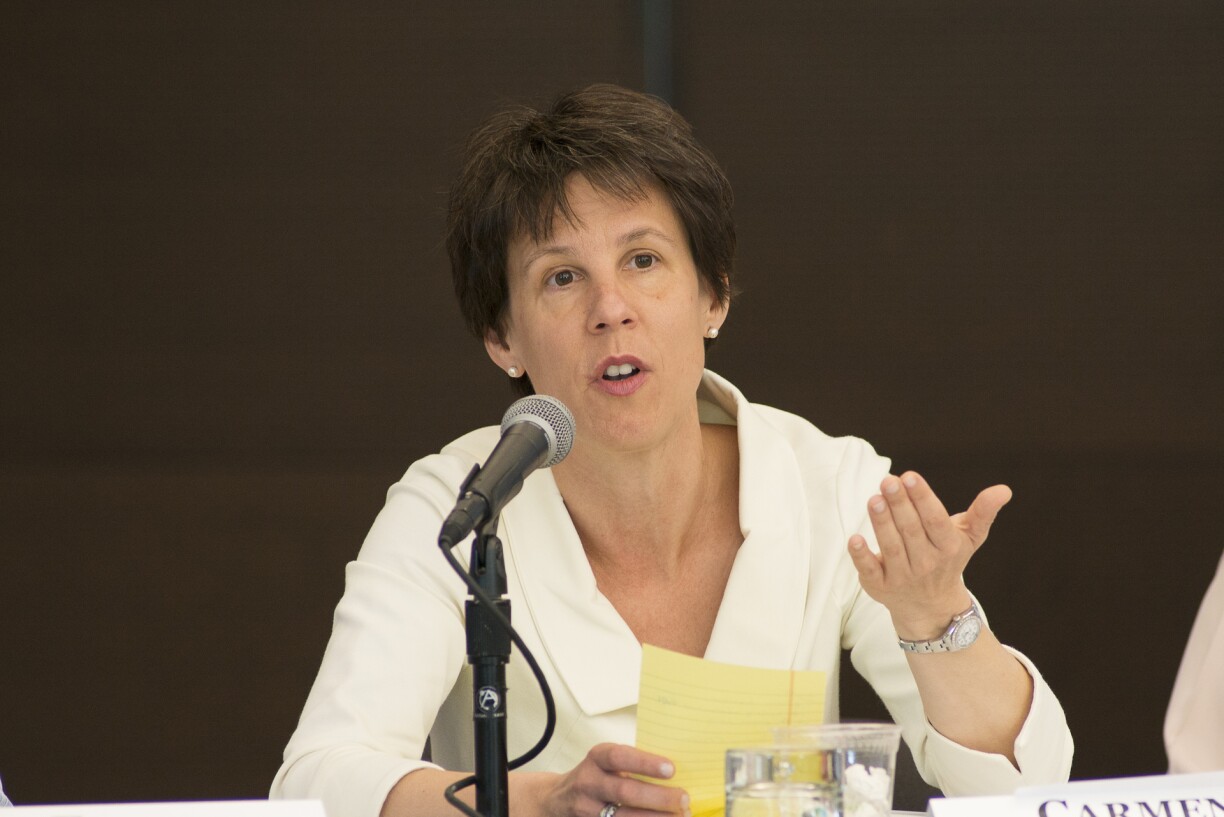
“I think women bring a different perspective to the whole dimension of climate”, she said, speaking to Melissa Dalton on RTL Today Radio. “There is a lot of research out there that women might be more willing to invest in the climate because they want to do it for children or have a longer term vision than men.”
“There is still more research to be done, but there is a high correlation between women and climate awareness”, continues Niethammer. “Companies led by women are doing better when it comes to reporting sustainability goals, are more invested in water and electricity efficiency.”
“Maybe we have a secret bullet there.”
Niethammer leads the EIB Gender Team on women’s entrepreneurship inside and outside the EU, closing gender gaps while driving gains in productivity, competitiveness, and innovation.
One of Niethammer’s responsibilities is that the EIB’s investments, which could be broadly categorised as either infrastructural or in the support of financial institution, positively impact both women and men, both in the execution of the project as well as its outcome.

“With Covid and its social and economic disruptions decades of progress has been overturned. It primarily manifests itself in the number of women in the labour force,” Niethammer explains.
For example, women were more likely to drop out of jobs to take care of children at home. This is reflected in the return to work: In 2021, more women were looking for jobs than men.
Niethammer says Covid taught an important lesson: A lot of progress can and must still be made.
Listen to the full audio interview here:
What is surprising is that entrepreneurial level of women in the EU is only at 11%, a recent report stated, compared to 20% in the UK or US, for example.
One of the biggest differentials is that women rely on different financing than men; they ask family and friends more for support. Men are more ready to ask for formal financing.
Even with public financing, women can benefit from grants at the start-up phase, but this access becomes much more difficult later. They could be less networked or just more risk-aware, Niethammer says, which is a positive trait.
It is clear that having more women at the top will benefit not only the organisation, but society as a whole:
“Women also invest more into the labour force, women also hire and retain more women. The are better at paying back their loans, whether that are commercial or housing loans.”